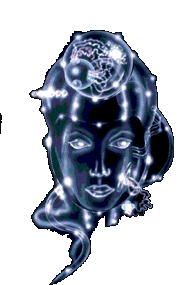Website Sections
- Home Page
- Library of Eugenics
- Genetic Revolution News
- Science
- Philosophy
- Politics
- Nationalism
- Cosmic Heaven
- Eugenics
- Transhuman News Blog
- Future Art Gallery
- NeoEugenics
- Contact Us
- About the Website
- Site Map
News Categories
- Artificial Intelligence
- Astronomy
- Cyborg
- Eugenics
- Freedom
- Futurism
- Futurist
- Liberty
- Nanotechnology
- NASA
- Spirituality
- Transhuman
- Mesothelioma
Partners




Manipulation Masked as Democracy
In 1999, even as we forged into the new millennium, the
Gallup Poll found that 68% of Americans still favored teaching
creationism together with evolution in the schools, with
40% favoring exclusively creationism; 47% percent subscribed
to the view that “God created human beings pretty much in
their present form at one time within the last 10,000 years of
so” (up from 44% in 1982!). In the words of the theologian
John C. Fletcher, such “controversy clouds rational discussion
with fear and misunderstanding.
The genetic bases of social and political structures constitute
a topic that even bolder sociologists and political scientists
have been leery of raising for two-thirds of a century. It
is a taboo which grossly distorts our understanding of ourselves.
There probably has never existed a society with a totally
rigid structure in which ability played no role. Under the
Caesars, the Pharaohs, the Ottomans, the Tsars, and probably
even the Mayan princes, the gifted slave could on occasion
demonstrate his ability and achieve high rank. In modern
society, however, where such mobility has been immensely
increased, universal education combined with assortative
mating is creating greater and greater genetic stratification
into classes which are then overlaid with stratifications of
wealth and power.
In a dictatorship, government is more inclined to determine
directly the various functions performed by its citizens,
whereas in a democracy the citizenry usually enjoys greater
freedom of selection. But even in the most permissive democracy,
if the individual does not possess independent means
and does not want to starve to death, he must perform some
function to which society assigns a value. Compulsion is a
key word in both systems. This is not stated as a value judgment,
but is simply a fact of life. The distinction between democracy
and dictatorship has to do primarily with how the
authorities get the same tasks accomplished – everything
from trash hauling to school teaching – and thus make it possible
to maintain a functioning social mechanism and allow
those in power to remain in power.
The Skinner box of capitalism has proven to be far more
efficient than the Gulag in raising production/consumption.
Evidently we have much more in common with cattle than
with cats, for we are herded with amazing ease. True democracy
is not possible if the people fail to understand the issues.
Political history is really nothing more than a broken string
of days that will live in infamy.
Dictatorships are difficult to maintain, since a leader
who refuses to take account of the disposition of forces in that
society will eventually be overthrown. Democracies, on the
other hand, possess considerably greater flexibility through
manipulation of the popular will.
As for political dialogue, it takes place on three levels: a)
sham issues intended to manipulate the masses; b) the true
(usually clandestine) views of the ruling elite; and c) longterm
species survival issues, which, since the beneficiaries do
not constitute a constituency, are generally more ignored
than suppressed.
In 1933, gazing around him in dismay at the Great Depression
and peering back at the “holy war fought to make
the world safe for democracy,” the former civil servant John
McConaughy in Who Rules America? defined his country’s
“invisible government” as “the political control for selfish, if
not sinister, economic purposes – by individual men, or
groups or organizations, who are careful to evade the responsibility
which should always accompany power. They operate
behind a mask of puppets in politics and business.”59 Exactly
a half century later the sociologist G. William Domhoff,
whose political views were far to the left of McConaughy’s,
arrived at similar conclusions in his Who Rules America
Now? when he described a cohesive ruling class that shapes
the social and political climate and plays a dominant role in
the economy and the government with the goal of promoting
its own self-interest.
No human interaction is more fiercely competitive than
politics. What is the true nature of that process? To take but
one example, Washington, D.C. is home to a society of “networked,”
monied, politically sophisticated individuals, while
37% of that same city’s residents read at a third-grade level
or lower.60 The situation is comparable to a champion
sprinter competing against a 90-year-old in a wheelchair. Not
surprisingly, the “winners” in this race favor the process that
allows them to achieve and maintain their spoils system, and
to do so without any sense of guilt.
One percent of American citizens now own 40% of the nation’s
wealth. In elections vested interests make electoral
campaign contributions, parts of which are used for polling
the voters to learn what they want to hear, while the lion’s
share is invested in advertising that is as based as little on
logic as an ad for a soft drink. The resulting advertising presents
a combination of what the pollsters discover and what
the propaganda specialists consider the populace will accept.
To make matters worse, literally a handful of people now control
most of the media, and there is no talk of applying antitrust
legislation to stop even further amalgamations. And the
system functions incredibly smoothly – exactly as intended.
When the candidate is eventually elected, having outspent
his opponent, he then goes on to do the bidding of those who
paid the bill. Should the electoral results be in doubt, the
candidate has merely to wrap himself in the flag while denouncing his opponents.
The result is an unbridgeable chasm of understanding between elites and the broad masses.
A serious book published by a university press may have a print
run of a few hundred copies, while a television show of only
middling popularity will measure its viewership in the tens of
millions, and Hollywood aspires to an audience of billions all
over the world. Intellectuals are supposedly free to express
their opinions (as least as long as they do not threaten the
powers that be), but informed opinion is irrelevant to the political
process.
This situation has been made possible by the failure of
the general populace to comprehend the true nature of the
issues. Indeed, how can any rational observer view any human
society as a collective of informed individuals making
rational decisions? In a 2000 Gallup poll, 34% of those questioned
were unable to name the probable presidential candidates.
For persons having a high school education or less and
earning less than $20,000 annually, this particular quotient
of ignorance rose to 55%.
According to a survey done by the
National Assessment of Education Progress, 56% of those
tested could not correctly subtract 55 and 37 from 100; 18%
could not multiply 43 x 67; 24% could not convert .35 to 35%;
and 28% were unable to express “three hundred fifty-six
thousand and ninety-seven” as “356,097.
In addition, 24%
of adult Americans were unaware that the United States had
fought the Revolutionary War with Great Britain, and 21%
had no idea that the Earth revolves around the sun. According
to the Northeast Midwest Institute, a nonprofit and education
research group, 60 million adult Americans cannot
read the front page of a newspaper.
Three Americans in ten between the ages of 18 and 24 could not find the Pacific
Ocean on a world map, while 67% of Brits did not know the
year World War II ended and 64% did now know which country
the French Alps were located in.
As for art, philosophy, serious music, literature, and so
on – that intellectual thought and creativity which should
lend greater meaning to our lives than those of other animals
that love, hate, and dream much as we do – such matters are
a subject of disinterest for the overwhelming majority of people.
But even this does not represent the furthest extreme of
egalitarianist politics. The millions of people ill with dementia
to the point that they are unable to dress themselves or
recognize family members also participate in selecting national
leadership. Surveys of patients at dementia clinics in
Rhode Island and Pennsylvania found that 60% and 64% had
voted, respectively. Brian R. Ott of Brown University found
that 37% of patients with moderate dementia and about 18%
with severe dementia had voted.
In selecting out individuals of ability, modern society
now has stripped the broad masses of society of the brilliant
artisans and poets who formerly created and maintained national
cultures.68 A visit to the magazine section of the local
supermarket or a flip through the hundreds of television
channels is a dismaying experience.
Transtopia
- Main
- Pierre Teilhard De Chardin
- Introduction
- Principles
- Symbolism
- FAQ
- Transhumanism
- Cryonics
- Island Project
- PC-Free Zone





More News
- Aerospace
- Astro Physics
- Beaches
- Eco System
- Gene Therapy
- Genetic Engineering
- Genetic Medicine
- Health Care
- Human Genetics
- Islands
- Libertarian
- Libertarianism
- Medical School
- Medicine
- Mind Upload
- Molecular Medicine
- Moore's Law
- Nano Engineering
- Nano Medicine
- Planetology
- Red heads
- Space Flight



